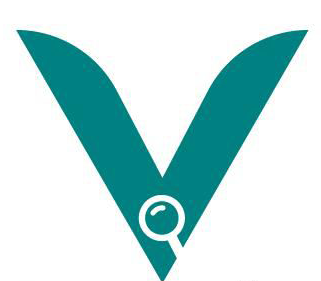KEY RESPONSIBILITIES:
HEALTH & SAFETY
- Develop, implement, and maintain the Health & Safety Management System (HSMS) aligned with corporate ESG goals, local regulations, and international standards (e.g., ISO 45001, IOGP, API, OSHA).
- Define, standardize, and implement company-wide HS policies, procedures, and templates to ensure consistency, compliance, and best practices across all departments and sites.
- Serve as the ESG Division’s lead on health and safety matters, ensuring integration of HS performance into broader sustainability reporting and disclosures.
- Conduct risk assessments, safety audits, and site inspections to identify hazards and drive continuous improvement.
- Lead investigations of workplace incidents, ensuring root cause analysis and corrective/preventive actions are documented and followed up.
- Support ESG reporting by providing accurate health and safety data (e.g., TRIR, LTIFR), including disclosures under GRI, SASB, or other ESG frameworks.
- Design and deliver training programs that promote a safety-first culture and build internal HS competencies.
- Collaborate with environmental and community relations teams to address cross-cutting HS issues (e.g., emergency preparedness).
- Liaise with regulatory authorities and ensure timely submission of all compliance reports and permits.
- Develop and maintain emergency response plans, ensuring preparedness and coordination with community stakeholders when necessary.
- Provide strategic input to ESG leadership on health and safety risks, trends, and opportunities.
PROCESS SAFETY MANAGEMENT
- Lead the development and implementation of process safety programs in alignment with OSHA PSM, API RP 752/753, and other international best practices.
- Oversee and facilitate HAZOPs and other process hazard analyses across operational sites, ensuring thorough documentation and follow-up.
- Conduct or oversee flow modeling and consequence analysis (e.g., gas dispersion, fire and explosion modeling) to support risk reduction strategies.
- Support engineering teams in integrating inherently safer design principles into plant modifications and new projects.
- Coordinate quantitative risk assessments (QRA) and ensure findings are integrated into operational controls.
- Review and validate emissions data and calculations for internal reporting and regulatory compliance.
- Collaborate with operations, maintenance, and engineering teams to ensure process safety risks are identified and addressed proactively.
BUDGETING
- Lead the preparation of the monthly budget.
- Develop and manage all budget items, including cost control and expenditure forecasting.
- Ensure the budget is in line with the department’s scheduled activities.
ORGANIZATIONAL DEVELOPMENT
- Supervise the team to execute assigned projects within deadlines and budget.
- Carry out performance appraisals and development plans with subordinate staff.
- Coordinate the leave schedule of subordinate staff.
QUALIFICATIONS:
- Bachelor's degree in Occupational Health & Safety, Environmental Science, Engineering, or a related field is mandatory.
- Master's degree is mandatory.
- Proven experience in Process Safety Management with a strong background in gas operations is mandatory.
- Multicultural experience is mandatory.
- Proficiency in French is a plus.
KNOWLEDGE & EXPERIENCE:
- A minimum of 10+ years of experience in HS / Process Safety Management role, in the Oil & Gas industry.
- Demonstrated experience in HAZOP facilitation, LOPA, SIL Assessments, QRA, consequence analysis, and GHC emissions quantification.
- Familiarity with software tools such as PHAST, Aspen HYSYS, or FlareSim is a strong advantage.
- Deep understanding of OSHA PSM, API, and ISO standards related to process safety and industrial risk management.
- Proficient in Microsoft Office Suite (Excel, PowerPoint, Word).
- Strong understanding of ESG principles, frameworks, and their intersection with health and safety.
- Certification in health & safety (e.g., NEBOSH, OSHA, ISO 45001 Lead Auditor).
- Proven experience in incident investigation, regulatory compliance, and risk management.
- Excellent leadership, communication, and stakeholder engagement skills.
- Experience contributing to sustainability or ESG reports is an advantage.
COMPETENCIES:
- Strategic Vision: Lead projects aimed at enhancing efficiencies through refined processes and procedures.
- Strong Leadership: Capable of addressing technical, financial, and HR challenges in a dynamic business environment.
- Analytical Expertise: Excellent analytical skills with a focus on data analysis and process optimization.
- Attention to Detail: Ensure accuracy and compliance in all documentation and processes.
- Confidentiality and Integrity: Proven ability to manage sensitive information professionally and confidentially.
- Exceptional Communication Skills: Strong interpersonal abilities to effectively engage with employees and stakeholders at all levels.
- Problem-Solving Ability: Demonstrated capacity to analyze complex issues and develop practical solutions.
- Change Leadership: Experience in spearheading change initiatives and fostering a culture of continuous improvement.
- Diligent Project Management: Effectively manage multiple projects and ensure timely delivery.
- Technology Optimization: Navigate complexities and drive efficiency through technological advancements.
- Organizational Skills: Strong planning, organizational, and time management skills, with the ability to coordinate activities across various disciplines.
Salary
Competitive
Monthly based
Location
Tarkwa, Western Region, Ghana
Job Overview
Location
Tarkwa, Western Region, Ghana

